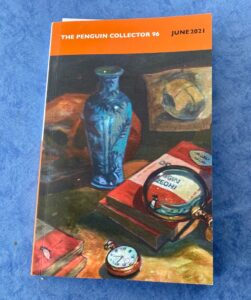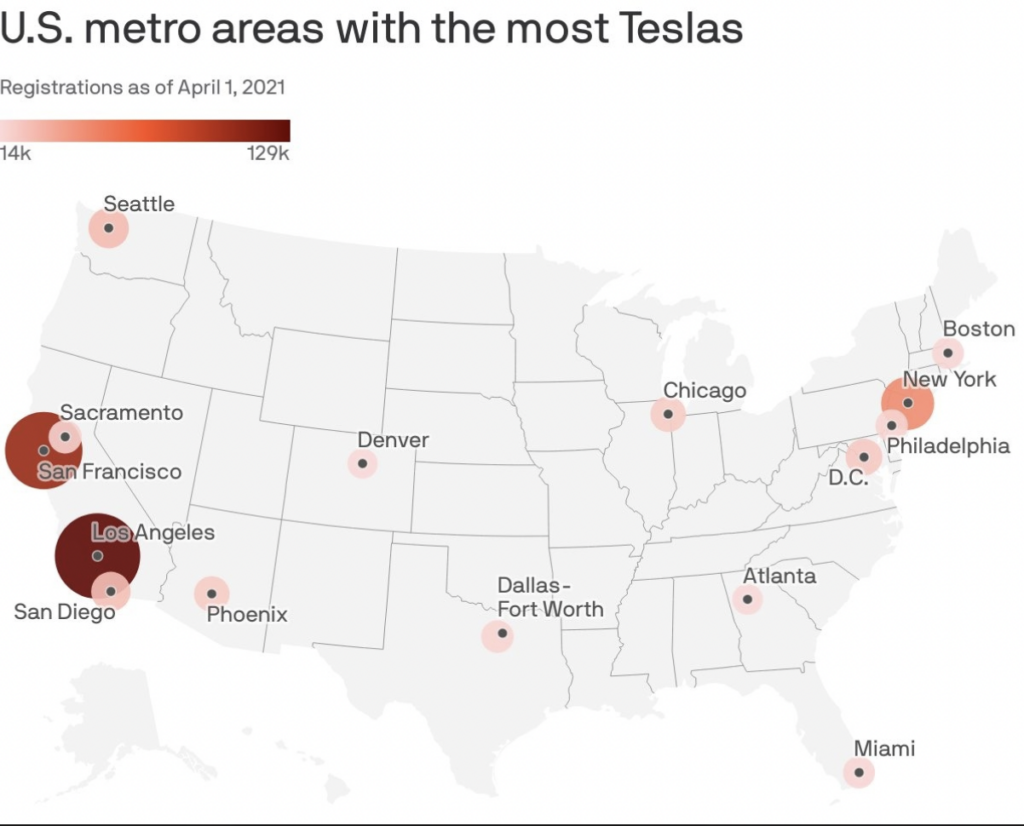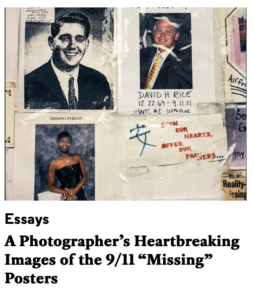Quote of the Day
”Criticism can be instructive in the sense that it gives readers, including the author of the book, some information about the critic’s intelligence, or honesty, or both.”
- Vladimir Nabokov
Musical alternative to the morning’s radio news
Richard Strauss | Morgen | Renée Fleming | Prague Symphony Orchestra conducted by Christian Benda.
A peaceful way to start the day. I don’t much like Strauss (except for the Four Last Songs), but this is really lovely.
Long Read of the Day
C.S. Lewis’s 1937 review of The Hobbit
From the Times Literary Supplement, October 2, 1937 courtesy of Literary Hub:
“The publishers claim that The Hobbit, though very unlike Alice, resembles it in being the work of a professor at play. A more important truth is that both belong to a very small class of books which have nothing in common save that each admits us to a world of its own—a world that seems to have been going on long before we stumbled into it but which, once found by the right reader, becomes indispensable to him. Its place is with Alice, Flatland, Phantastes, The Wind in the Willows.
“To define the world of The Hobbit is, of course, impossible, because it is new. You cannot anticipate it before you go there, as you cannot forget it once you have gone. The author’s admirable illustrations and maps of Mirkwood and Goblingate and Esgaroth give one an inkling—and so do the names of the dwarf and dragon that catch our eyes as we first ruffle the pages. But there are dwarfs and dwarfs, and no common recipe for children’s stories will give you creatures so rooted in their own soil and history as those of Professor Tolkien—who obviously knows much more about them than he needs for this tale. Still less will the common recipe prepare us for the curious shift from the matter-of-fact beginnings of his story (‘hobbits are small people, smaller than dwarfs—and they have no beards—but very much larger than Lilliputians’) to the saga-like tone of the later chapters (‘It is in my mind to ask what share of their inheritance you would have paid to our kindred had you found the hoard unguarded and us slain’).
“You must read for yourself to find out how inevitable the change is and how it keeps pace with the hero’s journey. Though all is marvellous, nothing is arbitrary: all the inhabitants of Wilderland seem to have the same unquestionable right to their existence as those of our own world, though the fortunate child who meets them will have no notion—and his unlearned elders not much more—of the deep sources in our blood and tradition from which they spring.
“For it must be understood that this is a children’s book only in the sense that the first of many readings can be undertaken in the nursery. Alice is read gravely by children and with laughter by grown ups; The Hobbit, on the other hand, will be funnier to its youngest readers, and only years later, at a tenth or a twentieth reading, will they begin to realise what deft scholarship and profound reflection have gone to make everything in it so ripe, so friendly, and in its own way so true. Prediction is dangerous: but The Hobbit may well prove a classic.”
I bet Tolkien had no idea how big this book of his would be.
Asteroids, dinosaurs, volcanoes and extinction
We’ve been reading Robert Harris’s marvellous thriller Pompeii which is remarkable not only for the depth of understanding of Roman hydraulic engineering that it evinces, but also for its compelling evocation of what it might have been like to have experienced the immediate aftermath of the eruption of Vesuvius in 79ad.
One of the characters, sheltering from the hail of pumice unleashed by the eruption, muses at one point about whether this is what the end of the world will be like. This started me musing about the asteroid collision that supposedly led to the extinction of dinosaurs 65-66 million years ago.
Coincidentally, Charles Arthur (Whom God Preserve) pointed to an interesting piece in Mashable about how we’ll know if a large asteroid is likely to strike Earth (TL;DR — it’s all done by NASA), but it doesn’t deal with the likely aftermath of such a collision. So I went looking for a plausible account of the asteroid impact that did for the dinosaurs.
One of the things that came up is this piece by Professor Paul Barrett of the UK Natural History museum. The extinction theory dates from 1980 when Nobel Prize-winning physicist Luis Walter Alvarez and his geologist son Walter published an hypothesis that a historic layer of iridium-rich clay that they had found had been caused by a large asteroid colliding with Earth. The instantaneous devastation in the immediate vicinity of the impact and its widespread secondary effects were, they argued, why the dinosaurs died out so suddenly.
The Alvarez hypothesis was, Barrett says, initially controversial, but is now the most widely-accepted explanation for the disappearance of every child’s favourite monster.
‘An asteroid impact is supported by really good evidence because we’ve identified the crater. It’s now largely buried on the seafloor off the coast of Mexico. It is exactly the same age as the extinction of the non-bird dinosaurs, which can be tracked in the rock record all around the world.’
The impact site, known as the Chicxulub crater, is centred on the Yucatán Peninsula in Mexico. The asteroid is thought to have been between 10 and 15 kilometres wide, but the velocity of its collision caused the creation of a much larger crater, 150 kilometres in diameter – the second-largest crater on the planet.
So it was a Big Bang. But how is it linked to the disappearance of 75% of the planet’s then-living animals?
Barrett’s explanation is that
The asteroid hit at high velocity and effectively vaporised. It made a huge crater, so in the immediate area there was total devastation. A huge blast wave and heatwave went out and it threw vast amounts of material up into the atmosphere.
It sent soot travelling all around the world. It didn’t completely block out the Sun, but it reduced the amount of light that reached the Earth’s surface. So it had an impact on plant growth.’
This reduction in plant growth then worked its way up the food chain, causing the global ecosystem to collapse. It obviously had a huge impact on herbivores’ ability to survive, which in turn meant that carnivores would also have suffered from having less food available.
In that sense, it looks as though the impact of the asteroid had a result analogous to the ‘volcanic winters’ that the planet has experienced over many centuries. An explosive eruption like that of Vesuvius send up colossal quantities of pulverized rock (like the pumice that submerged Pompeii, Herculaneum and other towns on the coast) as well as sulphur dioxide (SO2) and hydrogen sulphide (H2S) into the stratosphere. The short-term impact is the darkness that the characters in Harris’s novel experience immediately, but it’s the sulphur aerosols that form in the stratosphere that reflect incoming sunlight for a longer period (maybe years).
Harris’s book is terrific, btw.
Video of the Day
If you’re interested in Ludwig Wittgenstein (and who isn’t?), then set aside 50 minutes for this intriguing ‘Horizon’ documentary about him that was screened in 1989 and is now on YouTube. My late wife is buried in Ascension Churchyard — where Wittgenstein and Frank Ramsey are also interred — and I sometimes call by his gravestone to see what messages have been left for him by visitors.
This blog is also available as a daily newsletter. If you think this might suit you better why not sign up? One email a day, Monday through Friday, delivered to your inbox at 7am UK time. It’s free, and there’s a one-button unsubscribe if you conclude that your inbox is full enough already!










